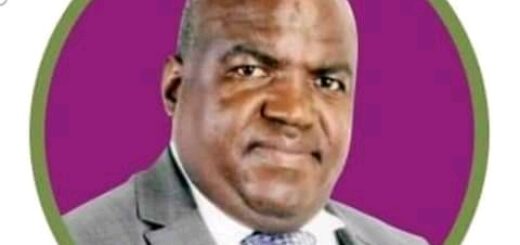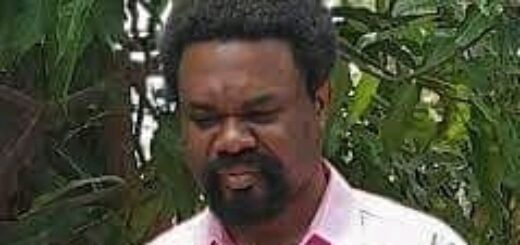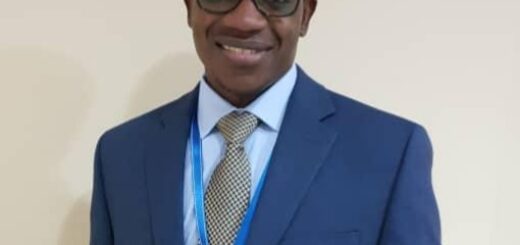Swedish Education Minister Gustav Fridolin launches Third Regional Project CSE
Notice: Undefined index: catFilterList in /home/zambi/public_html/wp-content/plugins/wp-likes/api.php on line 243
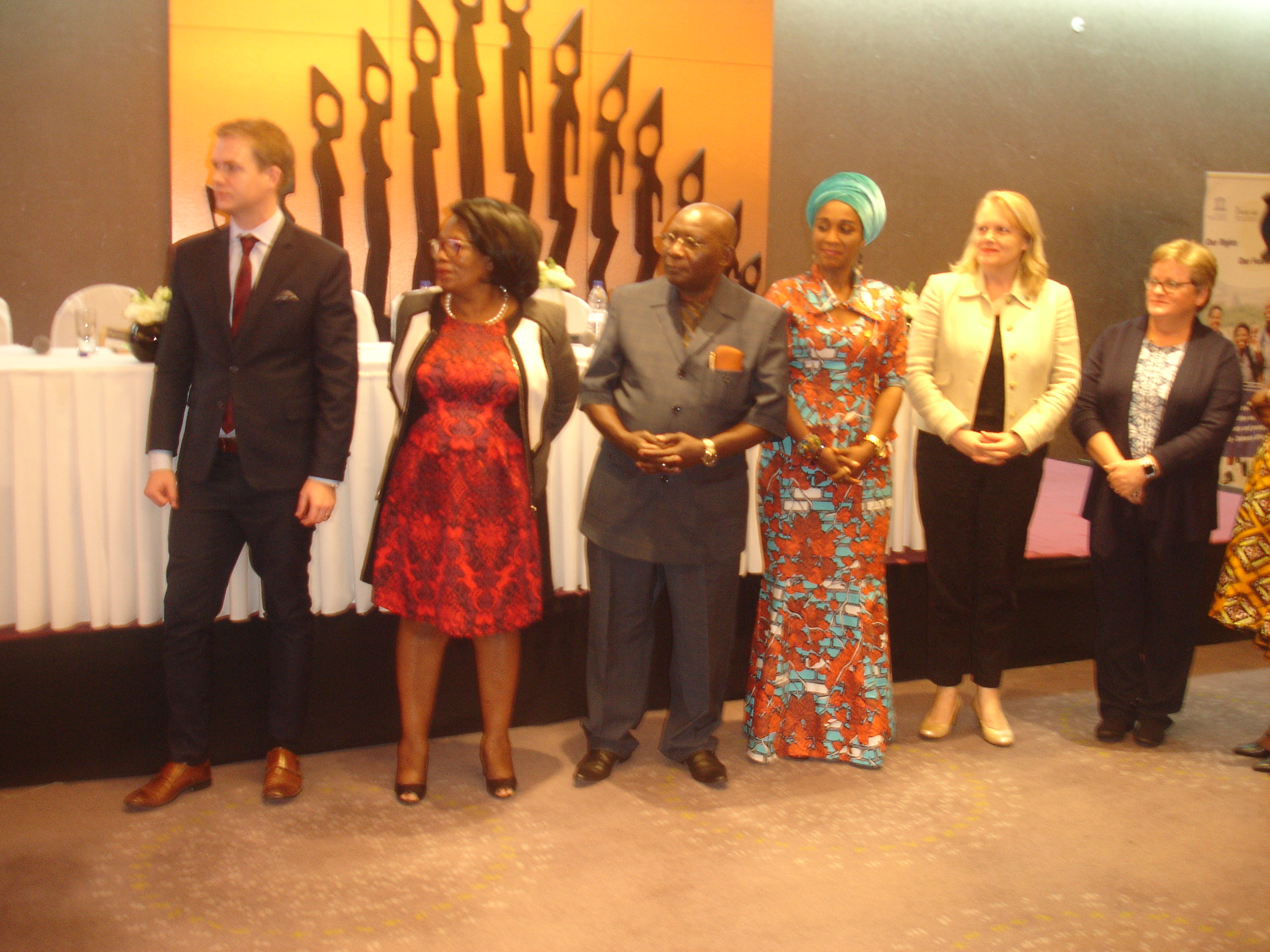
SWEDISH Education Minister Gustav Fridolin ,General Education Minister Dr. Dennis Wanchinga, Higher Education Minister, Professor Nkandu Luo, Ghanaian Deputy Education Minister, Barbra Asher, Swedish Ambassador to Zambia, Henrik Cederin, Embassy of Ireland Head of Development, Ms. Fiona Quinn and UN Resident Coordinator, Dr. Janet Rogan at the UNESCO Sweden 2018-2020 Third Regional Projects on Comprehensive Sexual Education launched ZamMon 15 Jan 2018 pix by Derrick Sinjela
By Derrick Sinjela and Favourite Jenala Kalando in Lusaka, Zambia
SWEDISH Education Minister Gustav Fridolin launched 2018-2020 Third Regional Projects on Comprehensive Sexual Education (CSE) reiterating that a common future as articulated in the United Nations Sustainable Development Goals will be determined by empowered you g people and women.
During at Lusaka’s Intercontinental Hotel, during a launch graced by Chief Mazdimawe of the Ngoni People of Eastern Province, and Chieftainess Mwenda of the Tonga Speaking people of Chikankanta District in the Southern Province, Mr. Fridolin acknowledged the pivotal role of United Nations Educational Scientific and Cultural Organisation (UNESCO) in anchoring the Third Regional CSE programme dubbed ‘Our Rights, Our Lives, Our Future’.
Speaking within earshot of General Education Minister Dr. Dennis Wanchinga, Higher Education Minister, Professor Nkandu Luo, Ghanaian Deputy Education Minister, Barbra Asher, Swedish Ambassador to Zambia, Henrik Cederin, Embassy of Ireland Head of Development, Ms. Fiona Quinn and UN Resident Coordinator, Dr. Janet Rogan, an optimistic Fridolin of restated that the energy of the “We look to a bright future can be achieved through education and health.
“Pregnancy and early marriage negate young people aspirations. We must all invest in empowering young people to make informed decisions. Sweden bravery started CSE processes in 1955, on the belief that human right come through effort and reform. Sweden is pushing young people to participate in economic work. Our support is honouring our brave heritage. I believe UNESCO better placed to lead this CSE Agenda dubbed ‘Our Rights, Our Lives, Our Future’ Young people can be the change agents,” prodded Fridolin.
Zambia has a total of 286 Chiefs, though Chief Mazdimawe of the Ngoni People of Eastern Province, and Chieftainess Mwenda of the Tonga Speaking people of Chikankanta District in the Southern Province and Chief Chamuka of the Lenje-Speaking people of Central Province are acknowledged by the Zambian Media Network on Ending Child Marriages as taking the frontline in retrieving young girls from early or forced marriages.
Advancing the Sustainable Development Goals (SDGs) through the O Three programme is guided by UNESCO’s strategy on education for health and wellbeing , designed through incorporating Goal 3 on Good Health and well-being, Goal 4 on Quality Education, Goal 5 on Gender Equality and Goal 16 on Peace and Justice-strong Institutions.
UNESCO is the United Nations’ specialized agency for education, providing global and regional leadership in education, strengthening education systems and responds to contemporary global challenges through education, with a special focus on gender equality and Africa.
Ghanaian Deputy Education Minister, Barbra Asher described Zambia as a second home and expressed pleasure to participate in interventions empowering young people.
Alluding to the United Nations delivering as one agenda, Ms. Arsher said Ghana had taken bold steps mobilizing CSE stakeholders, citing introduction of CSE School Clubs and the November 2017 braille intervention.
“We are proud to contribute to this positive drive to empower young as access to Comprehensive Sexual Education is the foundation on which to anchor the resilience of young people, women and men,” advised Ms. Asher, a position that pleased Zambian Children Young People and Women in Development (ZCYPWD) Executive Members Gyft M’membe, Beatrice Caroline Phiri and Bessie Mwanzah .
On her part, upon taking the podium, Professor Nkandu Luo acknowledged Chieftainess Mwenda and Chief Mazimawe for championing fight against early marriages out of 286 Chief spread through Zambia’s 10 provinces namely; Central, Copperbelt, Eastern, Luapula, Lusaka, Muchinga, Northern, north-Western, Southern and Western.
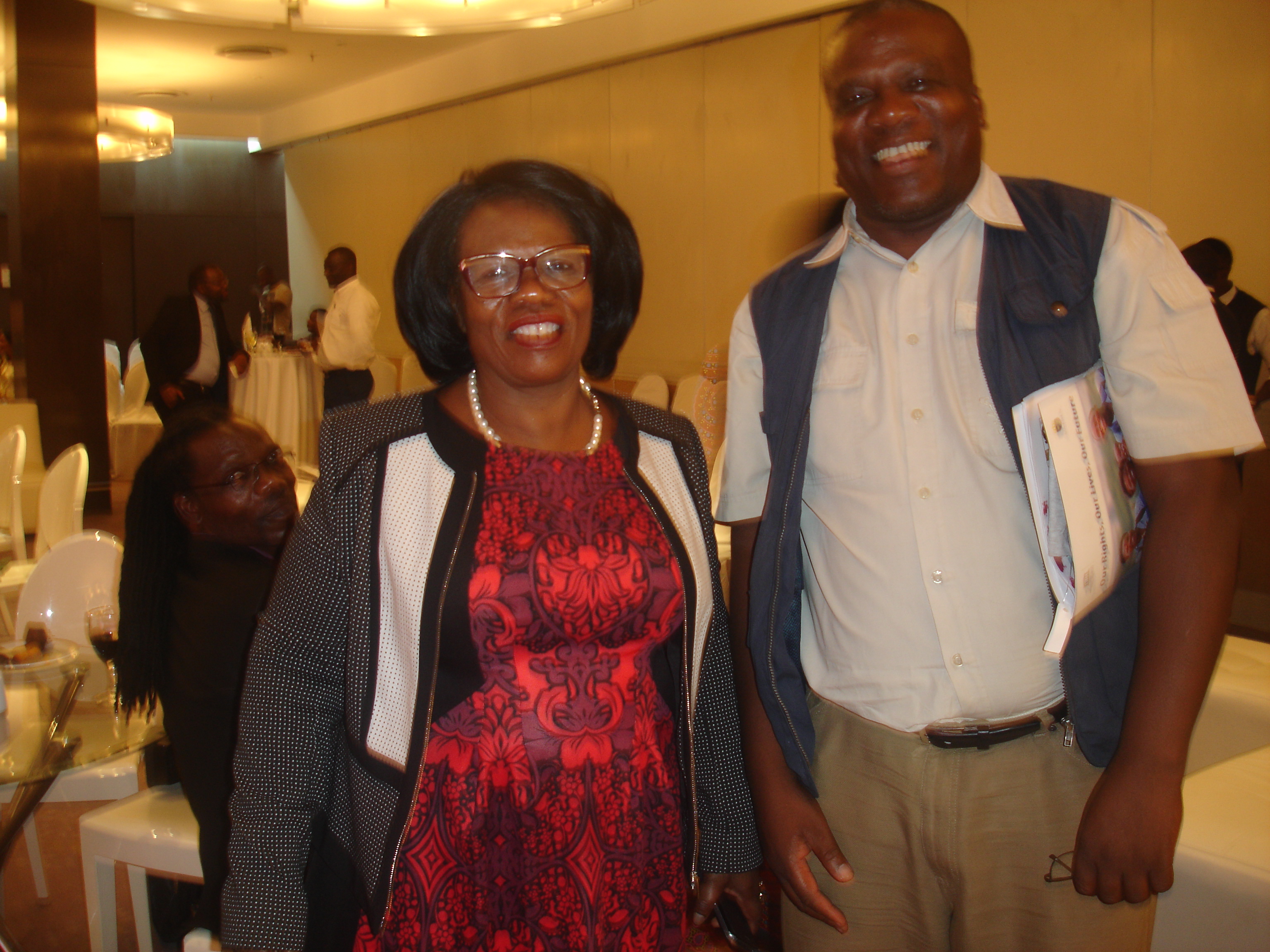
Zambian Child and Gender Rights Advocate Gershom Kapalaula with Higher Education Minister, Professor Nkandu Luo after SWEDISH Education Minister Gustav Fridolin launched 2018-2020 Third Regional Projects on Comprehensive Sexual Education (CSE) at Intercontinental Hotel in Lusaka on Monday 15th January 2018 –Picture by Zambian Media Network on Ending Child Marriages Zambian Developmental Media Alliance (ZADEMA)
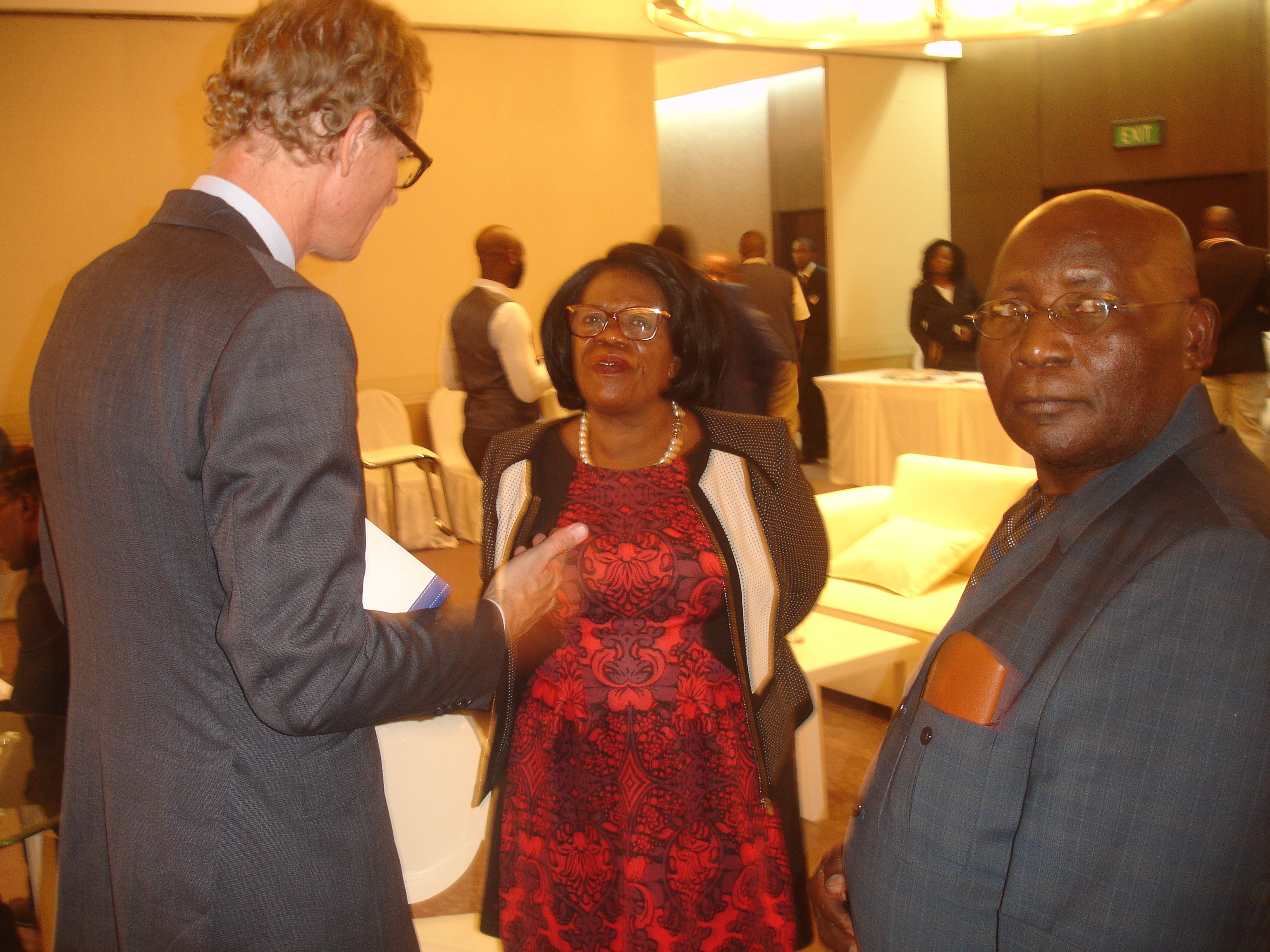
General Education Minister Dr. Dennis Wanchinga, Higher Education Minister, Professor Nkandu Luo with Swedish Ambassador to Zambia, Henrik Cederin after SWEDISH Education Minister Gustav Fridolin launched 2018-2020 Third Regional Projects on Comprehensive Sexual Education (CSE) at Intercontinental Hotel in Lusaka on Monday 15th January 2018 –Picture by Zambian Media Network on Ending Child Marriages Zambian Developmental Media Alliance (ZADEMA)
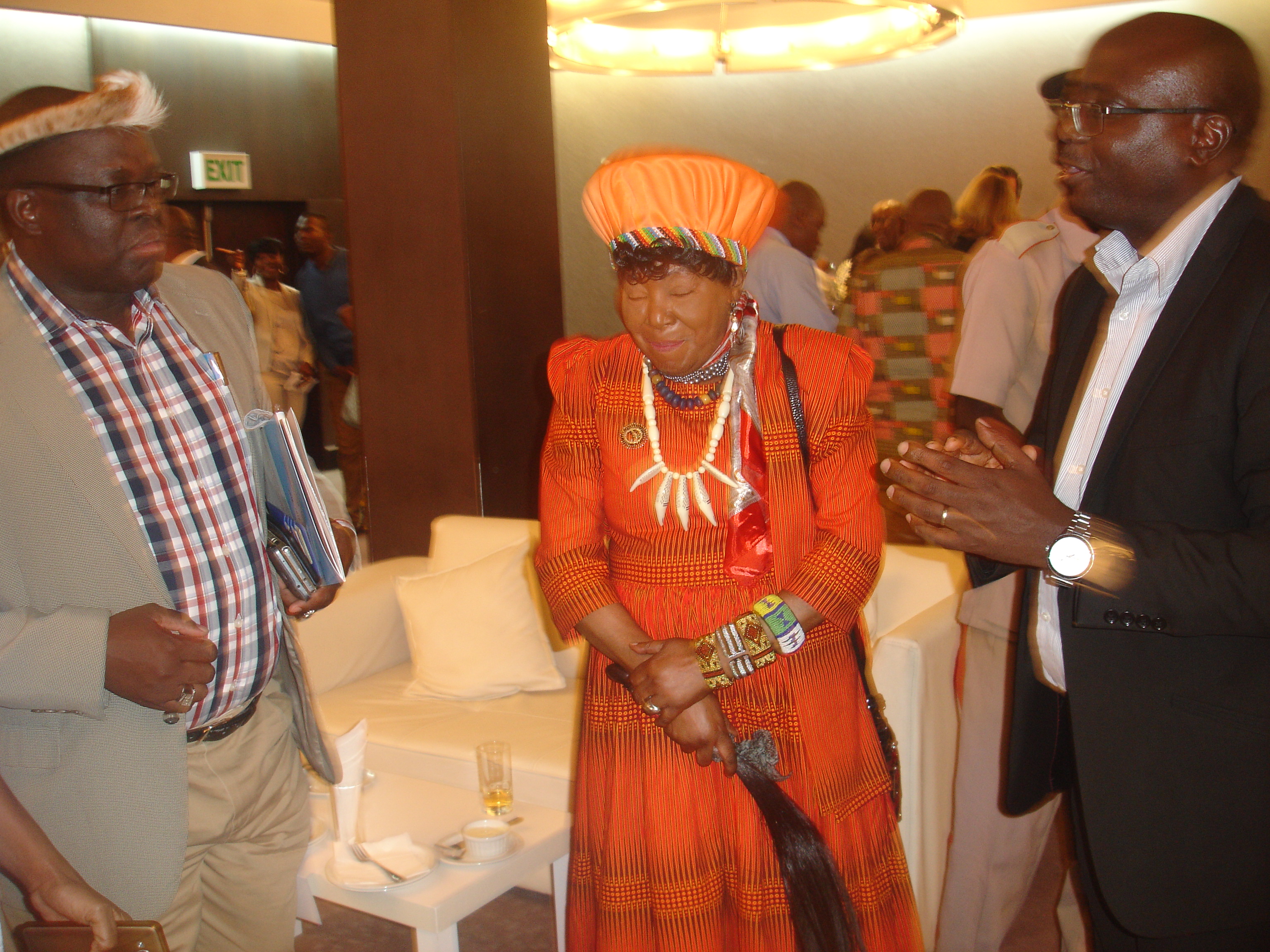
Chief Mazdimawe of the Ngoni People of Eastern Province, and Chieftainess Mwenda of the Tonga Speaking people of Chikankanta District in the Southern Province after SWEDISH Education Minister Gustav Fridolin launched 2018-2020 Third Regional Projects on Comprehensive Sexual Education (CSE) at Intercontinental Hotel in Lusaka on Monday 15th January 2018 –Picture by Zambian Media Network on Ending Child Marriages Zambian Developmental Media Alliance (ZADEMA)
“As Higher Education Minister, I bear the brunt. Zambia has no choice but to invest in the future by discouraging children from marrying early. I pray that intervention start early so I cannot inherit problems,” Prof Luo taunted General Education Minister Dennis Wanchinga as the Patriotic Front (PF) Munali Member of Parliament (MP) encouraged media participation.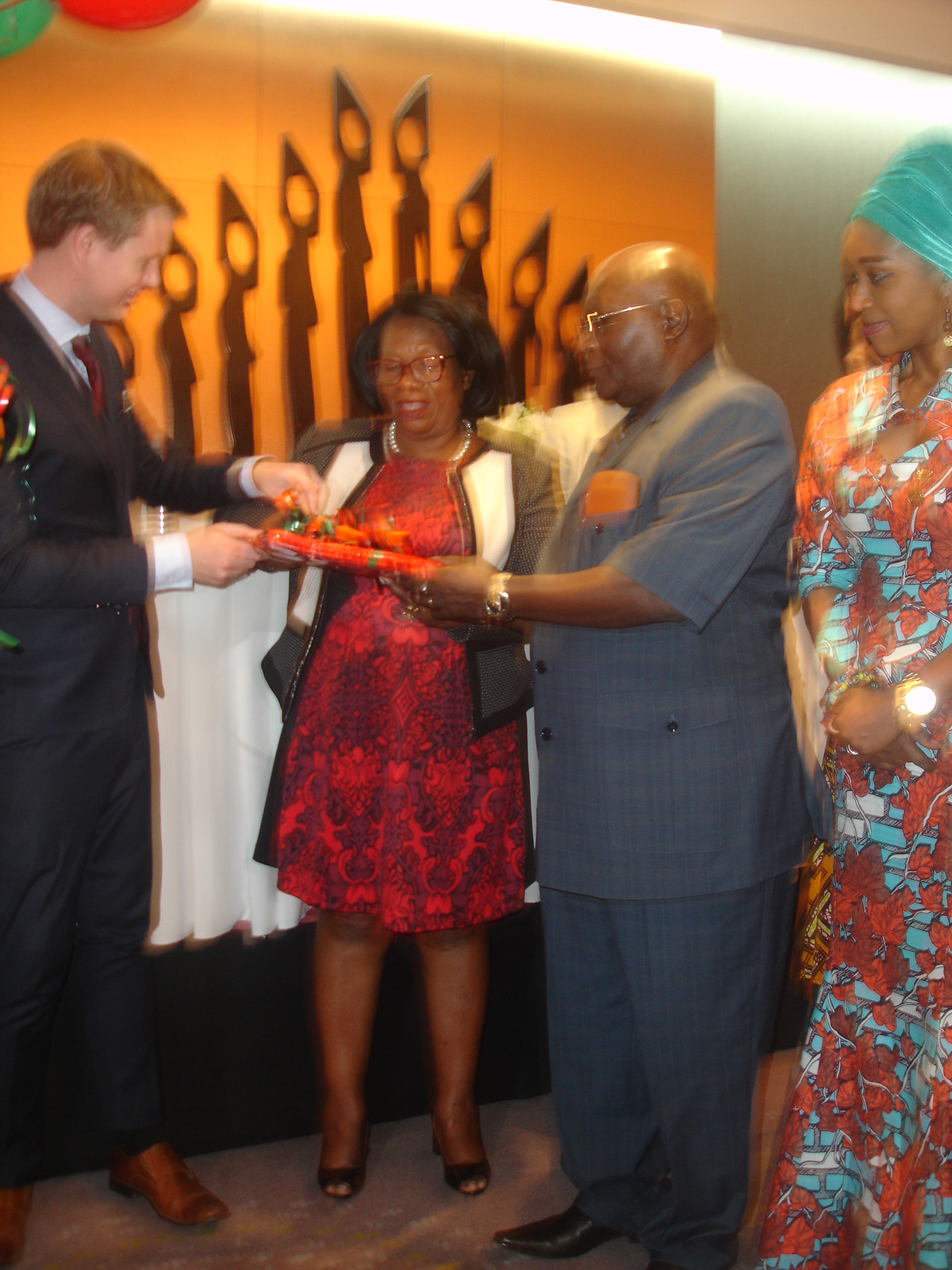
Dr Dennis Wanchinga said was Zambia delighted to host the Swedish and Irish supported intervention. On Comprehensive Sexual Education witnessed by delegates from Ghana and Zimbabwe.
“A lot of children drop out of school on account of a myriad of socio-economic woes. CSE is a development issue and failure to invest education of children’s amounts to shooting ourselves in the foot. If children do not know their rights, they will not protect themselves,” Dr Wanchinga said.
Restating a need to curb health costs fueled by ignorance, Dr. Wanchinga viewed education as a. a sustainable development equalizer, whose achievable progress is feasible through stakeholder common ground.
Ms. Rogan said the CSE initiative would contribute to improving health outcomes of young people beyond the Central, Eastern, Southern, and Western African regions, showering praise on UNESCO, UNFPA, UNICEF , UNAIDS and Sweden for rendering unwavering financial and technical support in the area of sexual reproductive and health rights.
“If we don’t know Our Rights, we can’t take control of our lives, and we risk losing Our future. Working together, we can change the future prospects of young people in and out of school,” admonished Janet Rogan, the UN Resident Coordinator in Zambia.
Embassy of Ireland Head of Development, Ms. Fiona Quinn equally acknowledged the influence of traditional and religious structures in improving sexual and reproductive health knowledge among children, young people and women.
In a Vote of Thanks, Ms. Mwanza looked ahead aspirations of young people in Ghana, Zambia, Zimbabwe and the east Southern African (ESA) region on comprehensive sexuality education and sexual reproductive health services being fulfilled through collaborative efforts of governments and cooperating partners.
Zambia’s Ministers of Education and Health endorsed the 2013 ‘Eastern and Southern African Ministerial Commitment to delivering comprehensive sexuality education and sexual reproductive health service’.
Two years ago, in January 2016, the UN 17 SDGs came into effect, with UN Secretary General reminding member states that progress is not moving fast enough as the global community is reminded of a ticking clock to 2030.
Between 2018 and 2020, ‘Our Rights, Our Lives, Our Future’ programme will reach 10,7 million learners, in 45, 000 primary and secondary schools, 30, 000 pre-service teachers, and 186, 000 in-service teachers.
An additional 30 million people-parents, guardians, religious leaders and young people out of school will be reached through community engagement activities and ten million young people through social and new media platforms.


